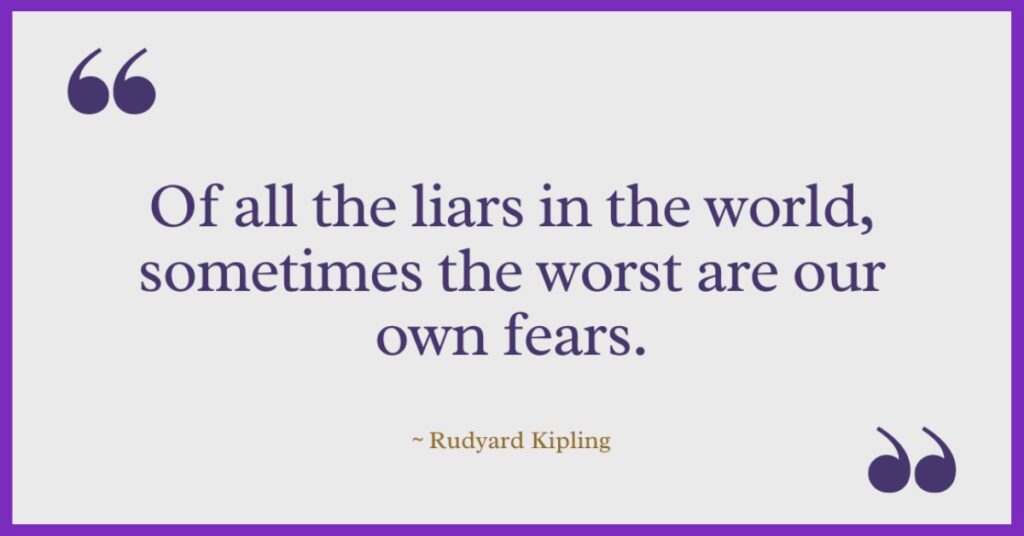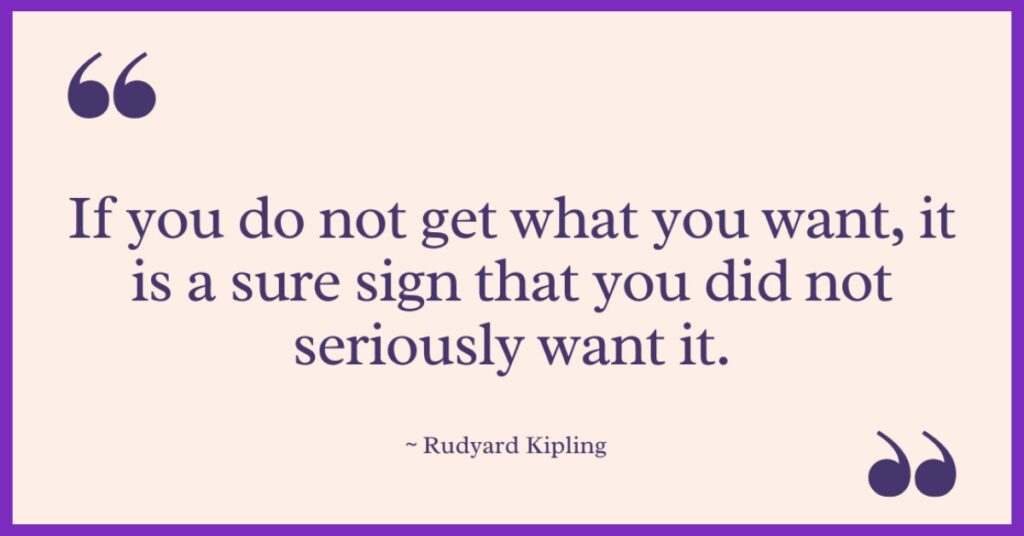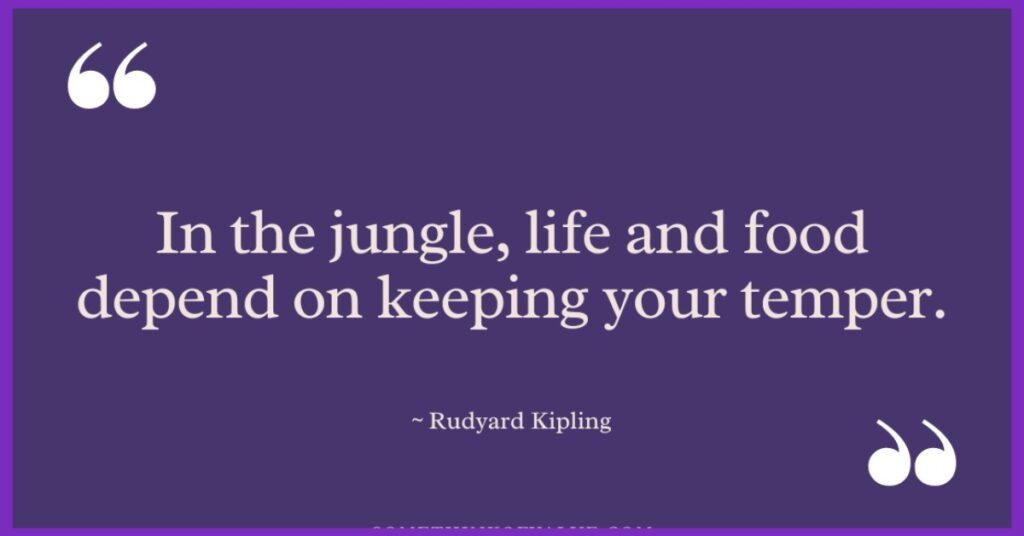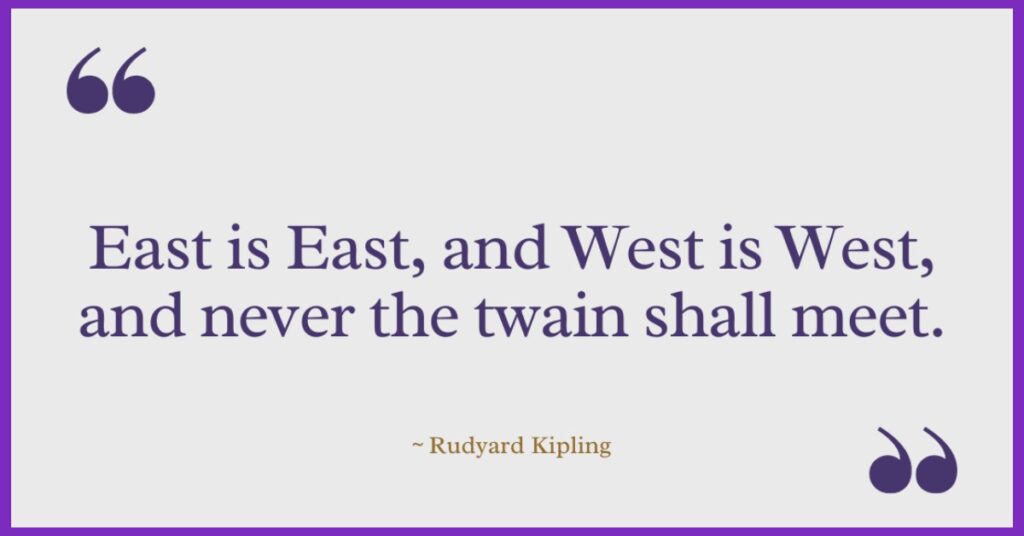Rudyard Kipling quotes resonate with wisdom and insight, reflecting the extraordinary life experiences and imaginative narratives of one of literature’s most beloved authors. Best known for his enchanting tales like “The Jungle Book“, his words often transcend their original context, offering timeless lessons on courage, resilience, and the human spirit.
From the bustling streets of Victorian England to the exotic landscapes of colonial India, Kipling crafted stories that captivated readers around the world while embedding profound truths within his narratives.
85 inspiring quotes by Rudyard Kipling uncover not just reflections on adventure and childhood but also poignant musings on duty, identity, and morality. If you’re a long-time fan or new to his works, these quotes will invite you to explore deeper meanings in everyday life.
Who is Rudyard Kipling?
Rudyard Kipling, born on December 30, 1865, in Bombay (now Mumbai), India, emerged from a diverse cultural background that significantly influenced his literary voice.
The son of English parents his father was a ceramic designer and mother was an author, Kipling experienced the complexities of colonial life firsthand.
His early years in India provided him with rich fodder for his storytelling, as he often incorporated themes of imperialism and adventure into his works.
After being sent to England for education at the age of six, he struggled with homesickness and isolation but eventually found solace in reading and writing.

Kipling’s literary journey took flight when he returned to India as a journalist at just 17 years old. He gained fame for his short stories and poems that resonated with both British and Indian audiences, such as The Jungle Book (1894) and Kim (1901).
His ability to blend intricate narratives with vivid depictions of Indian culture earned him accolades during the height of British imperialism. In recognition of his profound impact on literature, Kipling became the youngest-ever recipient of the Nobel Prize in Literature in 1907.
His life journey came to a close on January 18, 1936; his legacy endures through timeless tales that continue to spark conversations about colonialism and identity.
Profile Summary
| Name | Rudyard Kipling |
| Father’s Name | John Lockwood Kipling |
| Mother’s Name | Alice Kipling (née Macdonald) |
| Date Of Birth | December 30, 1865 |
| Date of Death | January 18, 1936 |
| Nationality | British |
| Rudyard Kipling Age | 71 years old |
| Gender | Male |
| Rudyard Kipling Height | 5 feet 6 inches (168 cm) |
| Rudyard Kipling Weight | 160 pounds (72 kg) |
| Astrological sign | Capricorn |
| Rudyard Kipling Net Worth | $56.5 Trillion |
| Place of Birth | Bombay (now Mumbai), India |
| Primary Sources of Income | Book royalties, literary awards, journalism |
| Occupation | Writer, Poet, Journalist |
Best Rudyard Kipling Quotes
His reflections on courage, responsibility, and the human experience capture the essence of our shared journey.

One might consider how his thoughts on mastery and perseverance not only inspire individuals striving for excellence but also encourage society to recognize the value of persistence in the face of adversity.
- “No price is too high to pay for the privilege of owning yourself.”
- “The glory of the garden lies in more than meets the eye.”
- “There’s no jealousy in the grave.”
- “More men are killed by overwork than the importance of the world justifies.”
- “We’re all islands shouting lies to each other across seas of misunderstanding.”
- “What stands if freedom fall?”
- “Beware of overconcern for money, or position, or glory. Someday you will meet a man who cares for none of these things. Then you will know how poor you are.”
- “There is no sin so great as ignorance. Remember this.”
- “Delight in the little things.”
- “No one thinks of winter when the grass is green.”
- “We are the opening verse of the opening page of the chapter of endless possibilities.”
Famous Rudyard Kipling Quotes
The most striking aspect of Kipling’s expressions is their ability to reflect complex human emotions and societal truths, urging readers to delve deeper into their own lives.

His contemplation on resilience reminds us that encountering challenges is not just part of life but essential for growth.
- “Of all the liars in the world, sometimes the worst are our own fears.”
- “Gardens are not made by singing ‘Oh, how beautiful,’ and sitting in the shade.”
- “Everyone is more or less mad on one point.”
- “And the first rude sketch that the world had seen was joy to his mighty heart, till the Devil whispered behind the leaves ‘It’s pretty, but is it Art?’”
- “We have forty million reasons for failure, but not a single excuse.”
- “Take everything you like seriously, except yourselves.”
- “I have my own matches and sulphur, and I’ll make my own hell.”
- “He wrapped himself in quotations – as a beggar would enfold himself in the purple of Emperors.”
- “If history were taught in the form of stories, it would never be forgotten.”
- “In times of war and not before, God and the soldier we adore. But in times of peace and all things righted, God is forgotten and the soldier slighted.”
Rudyard Kipling’s Quotes on Life
His exploration of themes such as resilience and morality reflects an understanding that life’s journey is fraught with challenges.

These reflections encourage us to confront adversity with courage, reminding us that each hardship serves as a stepping stone toward personal growth.
- “This is a brief life, but in its brevity it offers us some splendid moments, some meaningful adventures.”
- “I never made a mistake in my life; at least, never one that I couldn’t explain away afterwards.”
- “Yet there be certain times in a young man’s life, when, through great sorrow or sin, all the boy in him is burnt and seared away so that he passes at one step to the more sorrowful state of manhood.”
- “The world is very lovely, and it’s very horrible–and it doesn’t care about your life or mine or anything else.”
Rudyard Kipling’s Quotes on Love
Through his narrative lens, love is not merely an idyllic notion but rather a journey marked by trials and tribulations.

This perspective reminds us that genuine love requires resilience and compromise, emphasizing how true bonds strengthen through shared challenges.
- “You must learn to forgive a man when he’s in love. He’s always a nuisance.”
- “Heaven grant us patience with a man in love.”
- “Buy a pup and your money will buy. Love unflinching that cannot lie.”
- “Brothers and sisters, I bid you beware of giving your heart to a dog to tear.”
- “My heart is heavy with the things I do not understand.”
- “When young lips have drunk deep of the bitter waters of hate, suspicion and despair, all the love in the world will not wholly take away that knowledge. Though it may turn darkened eyes for a while to the light, and teach faith where no faith was.”
Inspirational Rudyard Kipling Quotes
We engage with his quotes, we find nudges toward self-discovery and an understanding of our interconnectedness with others.

A memorable aspect of Kipling’s work is his ability to convey complex life lessons through simple language, making profound insights accessible to everyone.
- “If you do not get what you want, it is a sure sign that you did not seriously want it.”
- “If you want something and don’t get it, there are only two reasons. You either really didn’t want it, or you tried to bargain over the price.”
- “All things considered, there are only two kinds of men in the world: those that stay at home and those that do not.”
- “If you give someone more than they can do, they will do it. If you give them only what they can do, they will do nothing.”
- “Enough work to do, and strength enough to do the work.”
- “Never look backwards or you’ll fall down the stairs.”
- “How can you do anything until you have seen everything,or as much as you can?”
- “Now, don’t be angry after you’ve been afraid. That’s the worst kind of cowardice.”
- “Follow the dream, and always the dream, and only the dream.”
- “If you can think–and not make thoughts your aim.”
- “If you can wait, and not be tired by waiting … if you can dream, and not make dreams your master; if you can think, and not make thoughts your aim; if you can meet with Triumph and Disaster, and treat those two impostors just the same; … yours is the earth and everything that’s in it.”
Rudyard Kipling’s Quotes in The Jungle Book
The Jungle Book offers a treasure trove of wisdom through its vivid characters and poignant narratives, showcasing the complexities of life and human nature.

The timeless themes encapsulated in his quotes resonate not just with children but also with adults navigating their jungles of experience.
- “In the jungle, life and food depend on keeping your temper.”
- “For the strength of the pack is the wolf, and the strength of the wolf is the pack.”
- “Thou art of the Jungle and not of the Jungle. And I am only a black panther. But I love thee, Little Brother.”
- “Now this is the Law of the Jungle — as old and as true as the sky; And the Wolf that shall keep it may prosper, but the Wolf that shall break it must die.”
- “Now these are the Laws of the Jungle, and many and mighty are they; But the head and the hoof of the Law and the haunch and the hump is — Obey!”
- “A brave heart and a courteous tongue. They shall carry thee far through the jungle, Manling.”
- “What is the Law of the Jungle? Strike first and then give tongue.”
- “Ye may kill for yourselves, and your mates, and your cubs as they need, and ye can; But kill not for pleasure of killing, and seven times never kill Man!”
Rudyard Kipling’s Quotes on Man
His insights inspire readers to confront both the triumphs and tribulations inherent in our existence.

The essence of his messages often revolves around the idea that man, with all his complexities, must grapple with the trials life presents while maintaining integrity and courage.
- “Words are, of course, the most powerful drug used by mankind.”
- “Too much work and too much energy kill a man just as effectively as too much assorted vice or too much drink.”
- “If you can keep your wits about you while all others are losing theirs, and blaming you. The world will be yours and everything in it, what’s more, you’ll be a man, my son.”
- “The reason the beasts give among themselves is that Man is the weakest and most defenseless of all living things.”
- “A man can never have too much red wine, too many books, or too much ammunition.”
- “If you can walk with the crowd and keep your virtue, or walk with Kings-nor lose the common touch; If neither foes nor loving friends can hurt you; If all men count with you, but none too much; If you can fill the unforgiving minute with 60 seconds worth of distance run- Yours is the earth and everything that’s in it, And-which is more-you’ll be a man my son.”
- “Let each man be judged by his deeds, I have paid my price to live with myself on the terms that I willed.”
- “All the money in the world is no use to a man or his country if he spends it as fast as he makes it. All he has left is his bills and the reputation for being a fool.”
- “Bite on the bullet, old man, and don’t let them think you’re afraid.”
Rudyard Kipling’s Quotes on Woman
His quotes reflect not only admiration for women’s strength and resilience but also a recognition of the multifaceted roles they play in society.

By emphasizing qualities such as courage, wisdom, and nurturing, he painted women as both formidable forces and gentle caretakers.
- “A woman’s guess is much more accurate than a man’s certainty.”
- “The silliest woman can manage a clever man; but it needs a very clever woman to manage a fool.”
- “She is intensely human, and lives to look upon life.”
- “Of course the Man was wild too. He was dreadfully wild. He didn’t even begin to be tame till he met the Woman, and she told him that she did not like living in his wild ways. ”
- “San Francisco is a mad city – inhabited for the most part by perfectly insane people whose women are of a remarkable beauty.”
- “For the female of the species is more deadly than the male.”
- “An ounce of mother is worth a pound of clergy.”
- “Four things greater than all things are women and horses and power and war.”
Rudyard Kipling’s Quotes on Compassion & Humility
His reflections push us to examine our capacities for empathy, emphasizing that true strength lies not in dominance but in understanding and kindness toward others.

Rather than merely portraying characters with overt power, his masterfully crafts narratives where vulnerability becomes a strength a consistent reminder that we are all interconnected through shared struggles and aspirations.
- “I always prefer to believe the best of everybody; it saves so much trouble.”
- “For the sin they do by two and two they must pay for one by one.”
- “If you can wait and not be tired of waiting, or being lied about, don’t deal in lies. Or being hated, not give way to hating, and yet don’t look too good, nor talk too wise.
- “Humble because of knowledge; mighty by sacrifice.”
- “We be of one blood, ye and I.”
- “Be slow to judge for we know little of what has been done and nothing of what has been resisted.”
- “He who can reach a child’s heart can reach the worlds heart.”
- “Believe the best of everybody.”
- “Borrow trouble for yourself, if that’s your nature, but don’t lend it to your neighbours.”
- “All the people like us are we, and everyone else is they.”
- “God help us for we knew the worst too young.”
Rudyard Kipling’s Quotes on Imperialism
His works reveal a duality in his perspective; on one hand, he glorifies the idea of empire as a noble endeavor that brings civilization to ‘lesser’ peoples.

This viewpoint echoes the prevailing sentiments of his time, where exploits were framed as benevolent missions imbued with a sense of duty to uplift others.
- “East is East, and West is West, and never the twain shall meet.”
- “Take up the White Man’s burden. Send forth the best ye breed. Go, bind your sons to exile, To serve your captives’ need; To wait, in heavy harness, On fluttered folk and wild. Your new-caught, sullen peoples, Half devil and half child.”
Rudyard Kipling’s Quotes on Six Honest
His exploration of the Six Honest Serving Men—Who, What, Why, When, How, and Where serves as a timeless reminder of the fundamental questions that drive human curiosity and understanding.

By engaging with these essential questions, we can unlock layers of meaning in both our personal experiences and broader narratives.
- “I keep six honest serving men (they taught me all i knew); Theirs names are What and Why and When And How And Where and Who.”
Rudyard Kipling Quotes on India & Travel
His deep connection to the Indian landscape vividly illustrates how the country captivated his imagination, allowing him to weave together the vivid sensory details of bustling markets, majestic palaces, and serene landscapes.

These elements not only serve as mere backdrops in his narratives but also reflect a broader understanding of cultural diversity and human resilience found within India’s complex societal fabric.
- “Now India is a place beyond all others where one must not take things too seriously—the midday sun always excepted.”
- “He travels the fastest who travels alone.”
- “The first condition of understanding a foreign country is to smell it.”
- “And what should they know of England who only England know?”
- “Asia is not going to be civilized after the methods of the West. There is too much Asia and she is too old.”
Conclusion
The collection of Rudyard Kipling quotes showcases the profound wisdom and insight that this legendary author imparted through his works. From themes of adventure and courage to reflections on duty and resilience, Kipling’s words continue to resonate with readers around the world.
These quotes not only celebrate the spirit of exploration but also encourage us to embrace life’s challenges with determination and grace. Rudyard Kipling’s inspiring quotes can glean valuable lessons that remain relevant in today’s fast-paced world.
FAQs
What is Rudyard Kipling Best Known for?
He is best known for his works such as The Jungle Book and Kim, which showcase his vivid storytelling and deep understanding of British colonialism.
Why is Rudyard Kipling Called Kipling?
Rudyard Kipling is called Kipling because it is his surname, which he inherited from his father, John Lockwood Kipling.
What is the Meaning of The Jungle Book by Rudyard Kipling?
The Jungle Book by Rudyard Kipling explores themes of identity, belonging, and the conflict between civilization and the wild.







